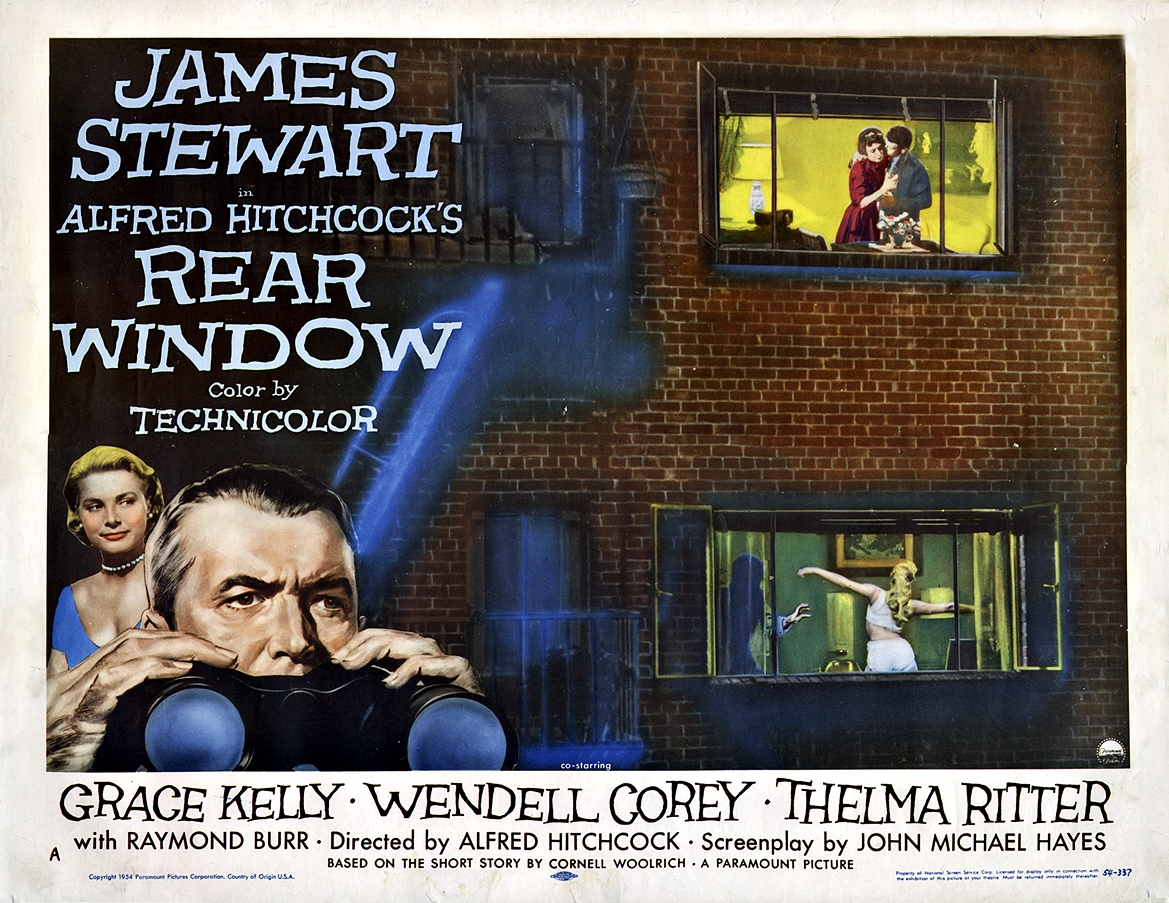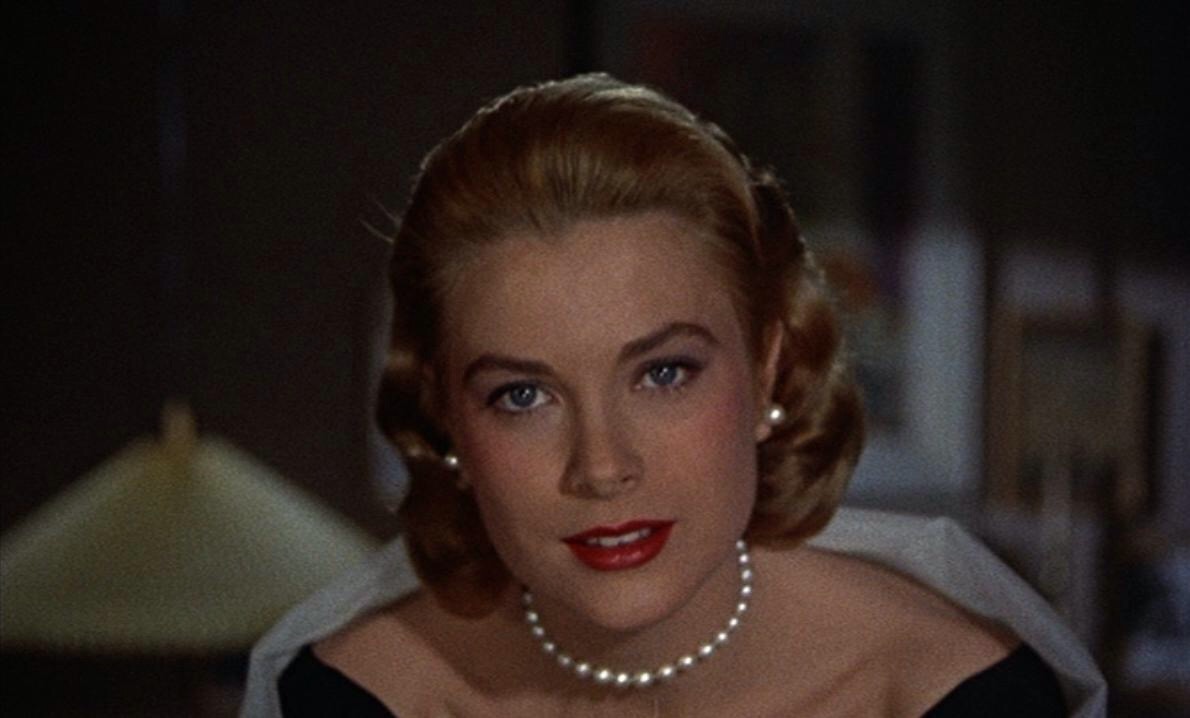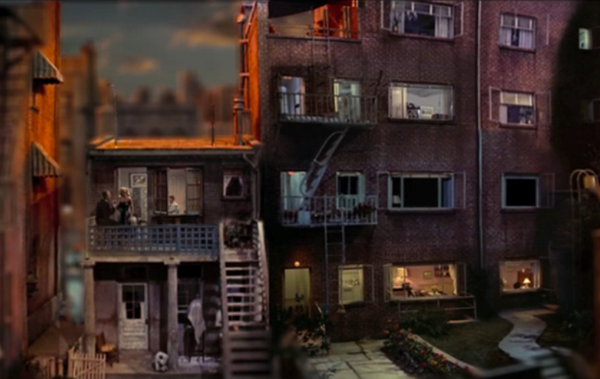by Chris Feil
Rear Window has to be one of the more embarrassing blind spots to have among the entirety of Alfred Hitchcock’s repertoire or as a Jimmy Stewart lover, but alas I had it. I know, I know.
Maybe the best thing I can chalk it up to is something that’s been in the ether of my lifelong Hitchcock consumption that’s kept me from the Happy Ending Hitchcocks. Things like To Catch A Thief stayed out of my orbit until adulthood without the veneer of morbidity to entice them to a young horrorhound. And rest assured that Rear Window ends as quaintly, if subversively sly, as any of his films. But like me telling myself I’ll eventually catch up to the film, Rear Window is itself about things we put off and avoid. It’s a movie about a man trying so hard to avoid commitment that he gets himself invested in a murder.

As a photographer, James Stewart’s L.B. “Jeff” Jeffries is naturally more consumed in others’ lives than his own, but Rear Window is a chamber piece bent on cornering into submission. He’s got a major metaphor of an injury, a fully-cast broken leg that limits him to a wheelchair with only the a courtyard of neighbors to entertain him. Well, there’s also an insurance nurse played by Thelma Ritter who stops by to aggress his back with lotion and needle him about settling down with that girlfriend of his. Oh did I mention his girlfriend is Grace Kelly?

Kelly’s debutante Lisa Fremont has to be among the horniest of all Hitchcock blondes, eager at every word from Jeff and captured in hazy glows. Lisa is always producing, going to big shows of affection for the invalid Jeff and cutting things abruptly when she’s wounded by his refusals. But mostly, she’s made of tough, capable stuff, ultimately becoming the hero and the brave one in catching a murderer. The whole thriller context for the film is just a vessel for the protagonist to understand how they had been underestimating the woman that loves him.
Is there something retrograde in Rear Window’s insistance on marriage, the taming of the restless bachelor? Kelly and Stewart’s age gap doesn’t at all help, but I don’t get a film proselytizing the virtues of settling down from Hitchcock here. There’s enough wit here to reveal a more rascally, satirical intent, that his ultimate suggestion is that it is Jeff who is naive about what a marriage can or should look like. The point all along is that Jeff has been avoiding his life needlessly through the empty escapism of voyeurism.

Rear Window turns the experience of pondering another’s life and the world around you into a marvel of staging. Much of its iconography lies in the various shots of simultaneous neighbors going about their daily lives on one massive set - it’s tense or daffy or even a bit naughty depending on where your eye drifts. Hitchcock’s achievement here is how it feels actually voyeuristic, like we’re not supposed to be watching what we’re observing. But Jeff gets to observe the intimacy of privacy without really engaging in his own, and being trapped in his home reveals that while he may be a citizen of the world, he may not be actively living one in the ways that we watch his neighbors do.
In delighting in toeing the line of proper social behavior, Rear Window uses the same conceit to sell its thriller as it does to reveal the protagonist’s hangups. The murder mystery is almost just furniture.
Other episodes of this series:
M (31) by Mark Brinkerhoff
Z (69) by Mark Brinkherhoff
Cabaret (72) by Ben Miller
Enter the Dragon (73) by Cláudio Alves
The Parallax View / Three Days of the Condor (74/75) by Lynn Lee
Farewell, My Concubine (93) by Tim Brayton
While You Were Sleeping (95) by Cláudio Alves
Memories of Murder/The Host (03/06) by Cláudio Alves